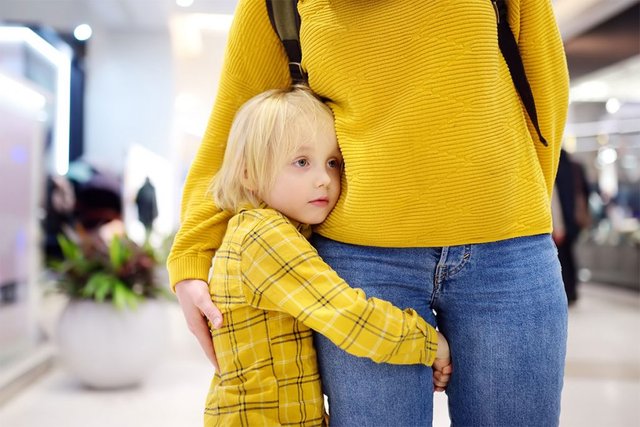How can you help your child if he is anxious ?
How to address your worried child first:
You can educate your child anxiety management skills.
Every child has anxiety, whether it's about monsters under the bed or school presentations.
Anxiety has its uses. Anxiety is a protective feeling. For example, when crossing the street, we fear being hit by autos. Anxiety keeps us alive and keeps your kid safe. Worry is a physical and mental state caused by the impression of threat or danger. Anxiety states are intense fear and anxiety.
Anxiety is a normal reaction to danger and is associated to protecting the organism's integrity. In situations when one should not be worried, or if it is felt more than it should be, this sensation may become an issue that requires attention.
Adults or children may worry about things that aren't realistic What can we do in this situation? We'll discuss it here.
How you respond to your child's anxiety will influence how they learn to cope. Here are nine ways to assist a nervous youngster cope with their feelings.
Discuss with your youngster how anxiety keeps them protected. Their brain warns their body if they are being pursued by a lion. The palms sweat, the heart beats quicker, and energy is released as it prepares to act.
Their brain may issue a false alert, warning their body of danger, even if it isn't life-threatening. Attending a basketball game, participating in a spelling bee, or failing a test might cause the same anxiety as battling for one's life.
Help your child distinguish between a false alert (annoying but not life-threatening) and a genuine alarm (a life and death situation).
Explain that if it's a genuine alarm, they should pay attention and take precautions. If it's a false alarm, confront their anxieties. “Is your brain giving you a true alert now, or is it giving you a false alarm?” question when anxious. So you can help them determine what to do.
Teach your child to gather proof on his own when you aren't there. It is possible to modify one's mind and alleviate worry by reviewing evidence.
While reassuring a worried child is necessary, teaching them to feel safe is even more vital. Do not hurry to reassure her that she will do well in her dance presentation.
“What would you tell a friend coming to a dance recital?” “I would have told him he would do well,” your youngster may reply.
Lessons on love and compassion, as well as better self-talk, are the goal. So they can reassure themselves even when you aren't around.
In order to help your child cope with anxiety, teach them how to relax their body. Exercising together can help them relax (many examples available online). Discuss how they can do it alone when they are anxious.
If your child is afraid about something they can't control, like tomorrow's baseball game being rained out, help them face their fears. Ask your child if there is anything you can do about a particular worry. If yes, assist them in solving the issue. For example, she should study for a scientific examination. If they don't make the basketball team, they can practise their abilities. If she's afraid about something she can't control, like the weather or someone else's actions, talk about how she can manage her reaction. Discuss maximising terrible weather.
Encourage your youngster to walk and engage in an activity to shift their focus. Running or playing outside can help them relax.
Controlling parents have been shown to raise their children's anxiousness. That's why it's vital to monitor your parenting style and child interactions. To make matters worse, don't force your youngster do anything or pretend everything is fine. Be wary of perfectionist inclinations. Expecting perfection from your child might generate tension in both of you. Get help if you're suffering from anxiety. Your anxiety may infect your child, causing uneasiness in them.


This post has received a 28.48 % upvote from @boomerang.